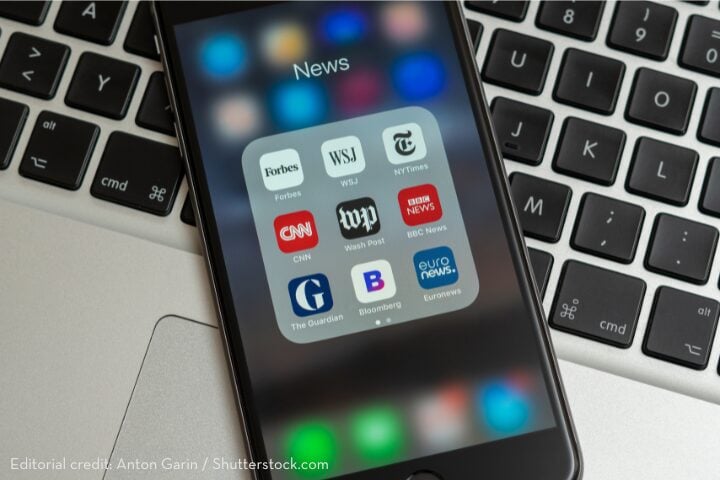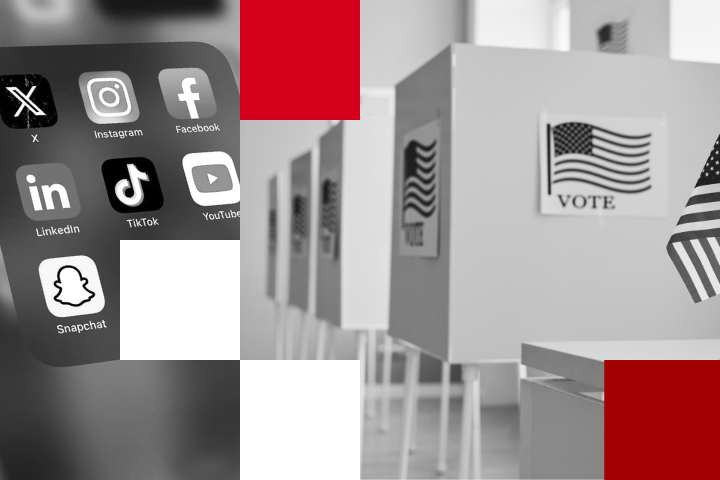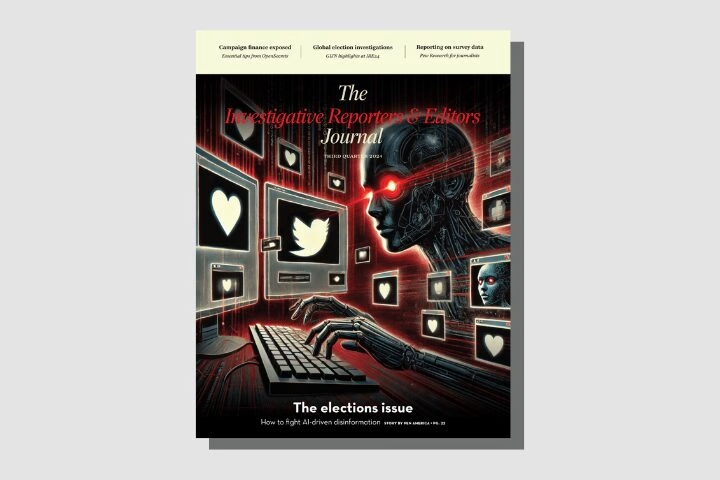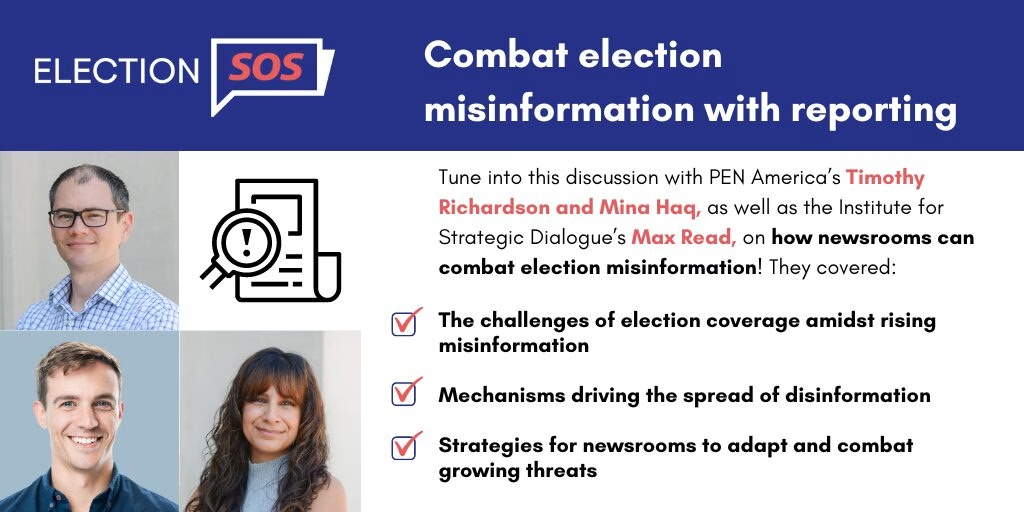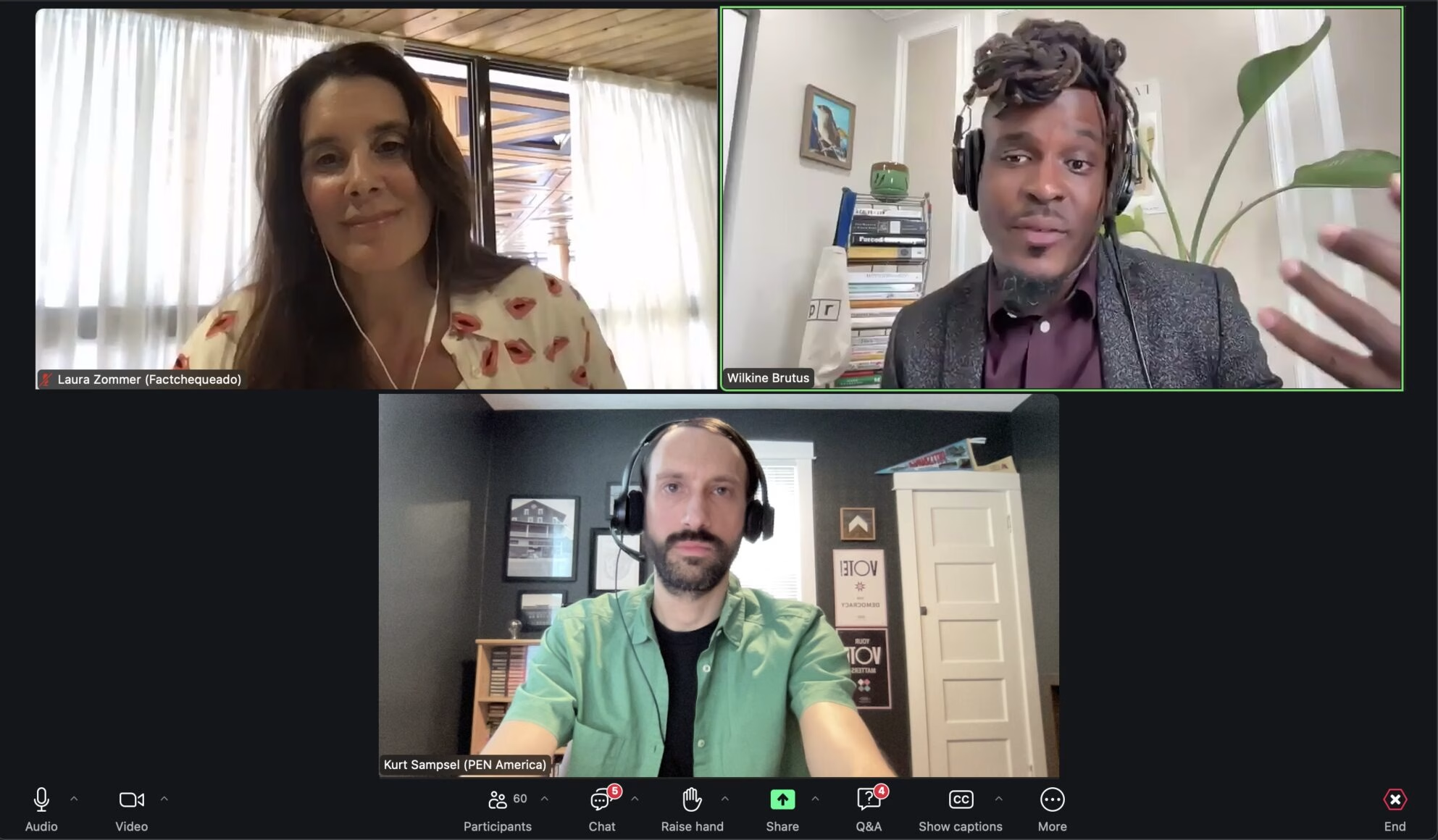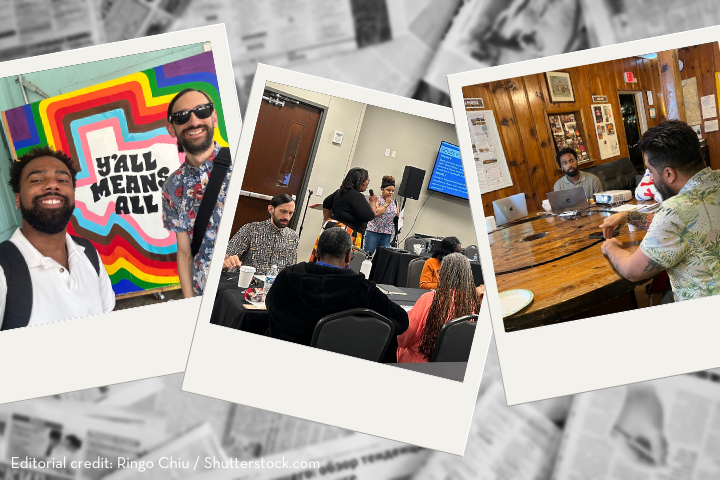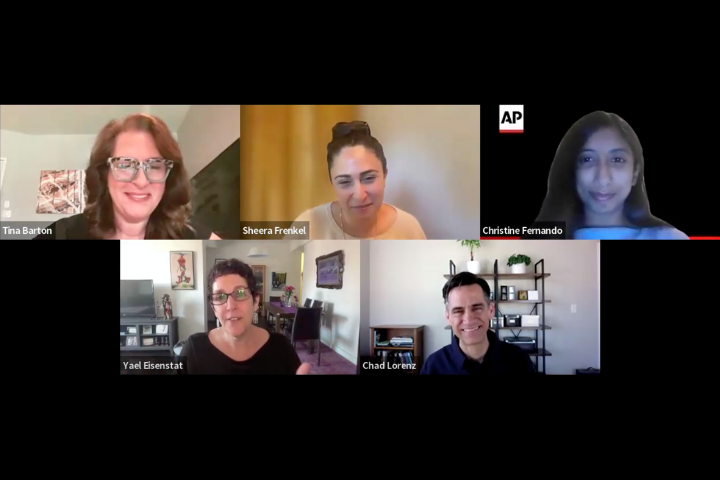This Q&A is part of a series of interviews with journalists and experts who regularly handle disinformation. The interviews will appear regularly through the election and beyond to highlight best practices, insights, case studies and tips. Our goal is to provide a resource to assist reporters and community members through the news events of 2024.
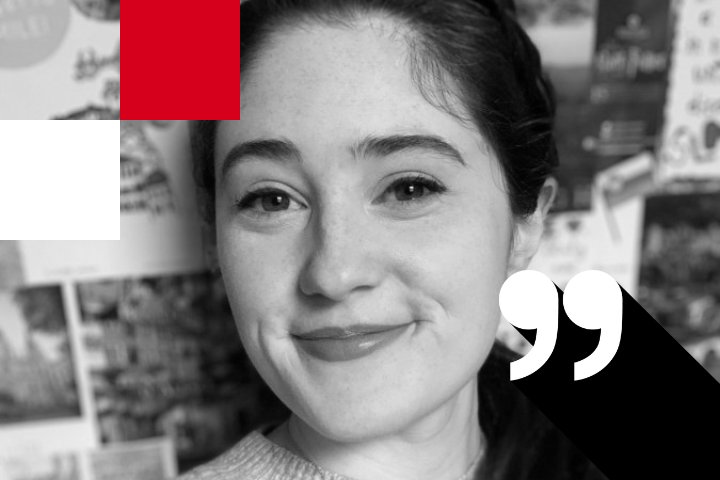
Isabel Jones is a digital research analyst at the Institute for Strategic Dialogue, where she researches disinformation, hate, and extremism, with a focus on Pennsylvania. PEN America spoke to Jones on the mis- and disinformation narratives taking shape around the election.
This interview has been edited for length and clarity.
What disinformation narratives are you and your team seeing pop up more often this election cycle? What narratives are you expecting to be the most salient with voters?
What stands out to me in this election cycle, especially compared to 2022, is conspiracy theories around noncitizens voting in elections. Of course, this is by no means a new claim – immigration as a political topic is always weaponized for political discourse. However, the volume of fake claims we’re seeing around noncitizens allegedly voting or registering to vote across states, across the nation, is something that’s really resonated with election-denying communities, unfortunately, and it’s also kind of fed into more broad conspiracy theories about fraudulent voter registrations. This is really interesting right now in the Pennsylvania landscape, specifically, given news out of Lancaster and several other counties of batches of potentially fraudulent voter registrations being dropped off.
These narratives concern us because not only do they undermine faith in election administrations and election systems, but they could be used to lay the groundwork for claims of election fraud following the election, depending on how things pan out. So those claims of noncitizens voting, we definitely are concerned about. We’re also worried for any harassment or threats they might spur against voters of color, folks that individuals might think are not citizens or are, for some reason, not eligible to vote. That’s something we’re keeping a really close eye on.
In terms of other initiatives that are gaining attraction but aren’t necessarily new, in Pennsylvania specifically – and of course, nationally – conspiracy theories about election results not being available by the end of the day on Election Day as indicators of fraud are something we continue to see getting engagement. They resonate with election-denying spaces, and they seem to really pick up steam.
Something else new is misleading or false claims of voter suppression being weaponized to evidence broader election fraud. For instance, recently, some election-denying influencers have claimed that Democrats have posed as poll workers or as volunteers at voter service centers in Pennsylvania and told folks to get out of line if they were waiting to request an on-demand mail-in ballot and cast it there, and other pieces of disinformation around that.
I think those are what stand out to me as the biggest themes that are definitely recurring. And to briefly backtrack to the voter registration stuff, it’s been a concerted effort by election-denying groups to purge voter rolls and to launch voter roll challenges to try to get folks off of voter rolls, oftentimes on really faulty analysis of really faulty data, and that, of course, carries a huge risk of disenfranchising voters.
Who do you think are the primary sources of that disinformation? What do you think ties them together as being the most prominent disinformation narratives?
Unfortunately, there is quite an ecosystem now. One of the biggest differences between 2020 and 2024 is how well election-denying organizations and individuals have synced up their efforts and began to coordinate. Something concerning that we see is a little bit more coordination, at least more explicitly, between groups that would frame themselves as grassroots Pennsylvania election-denying groups, like Audit the Vote PA, groups like Mike Lindell’s efforts. For example, Mike Lindell (an election-denier and CEO of MyPillow) has a platform called Vocl, and True the Vote has a platform called Vote Alert that they’re promoting as potential repositories for claims of election fraud, so folks across the country can submit allegations of funky things they’re seeing on Election Day, or if they think they witness fraud, then Audit the Vote PA has claimed they’re on the admin side of True the Vote’s claims on the app. So anything that comes out that is tagged for Pennsylvania, Audit the Vote PA will escalate.
That coordination definitely worries us. But in terms of other folks, I’d say that the national election-denying influencer sphere – your (conservative influencer) Charlie Kirks, your (QAnon conspiracy promoter) Scott Preslers – are definitely big amplifiers. They’ve done this for so long now, but they’re finding state-specific claims and blowing them up as evidence of broader election fraud across the country. And unfortunately, there are some really high-profile figures who continue to amplify these claims – very notably, former President Donald Trump, in the Pennsylvania-specific scene, has been very blatant in amplifying explicit and false claims of election fraud and calling on them to be investigated. And then, unfortunately, of course, there are mainstream Republican figures who are amplifying these claims and who are launching lawsuits based on frivolous conspiracy theories.
Elon Musk has emerged as a huge amplifier of election disinformation in Pennsylvania and has become very involved with a slew of election-denying figures in the state. We know that he’s put money behind some of these efforts in some ways, or at least his PAC – America PAC – has, and while reach metrics on X are questionable, his amplification broadens these election conspiracy theories to an audience that’s more mainstream than those who would have typically been engaging in election disinformation.
Is there a specific audience that you see these claims resonating with more, or is it mostly people who are already in the conspiracy theory world?
Something we always try to see is if the conspiracy theory claim is breaking beyond the typical audience and getting into more mainstream spaces. We try to do this by looking at more mainstream platforms, notably Meta platforms. But unfortunately, with the removal of CrowdTangle and our lack of access to analysis on Facebook and Instagram, that’s become a lot more difficult to do.
Some of the conspiracy theories have become a bit more mainstream, usually based on just nuances of election processes that kind of get lost in the mix, like allegations that election results not being ready by the end of the day are indicative of fraud. But typically, the majority of these are resonating with those who are predisposed to election denialism. And with greater access to information and platforms … especially with cross amplification, [conspiracy theories] are definitely crossing into the mainstream. I’d also say mail-in ballot theories are being bridged into mainstream spaces, and voting machines as well.
Do you have any advice as a researcher for how political journalists should cover these narratives that are becoming more mainstream, especially in the period right after the polls close and people are more uncertain?
It’s very heartening to see how much good work is being done around these things. First and foremost, be really careful about amplifying any conspiracy theories that might not yet be making it into the mainstream, or giving any kind of amplification or credence to folks who are spreading these things. Oftentimes, they know how to make media coverage work in their favor. Even if it’s negative for them, they’ll use it to garner awareness for their cause, spread their name, give them notoriety in their own circles. And given how much those spaces demonize media – and mainstream media, in particular – they can just use it to further exacerbate political divides and polarization.
Be really careful about what’s being amplified and what’s not, and amplify the messaging coming out from Pennsylvania officials. The most hope I have from 2020 is how well-prepared the officials are, how dedicated they are in this really hostile environment to be an election official or an election worker, and how seriously they’re taking conspiracy theories, mis- and disinformation, and how hard they’re working to get accurate information about voting out. Amplify them as much as possible. Just draw attention to that credible information, those credible sources.
Is there anything I didn’t ask that you want to touch on?
My big thing – and this is so obvious, but I feel like it can’t be said enough – is the normalization of violence against election officials, even those on the periphery of election spaces. For example, with these conspiracy theories about voters being suppressed at places in Bucks County (Pennsylvania) – they were volunteers who were just there to help monitor things, as volunteers do, and they were caught up in these conspiracy theories. We’ve seen threatening rhetoric targeting those volunteers, people who are just dedicating their time. That normalization, that immediate reaction to go to violent rhetoric around folks in political spaces who are just volunteering, just trying to support democracy, is something that we’re really concerned about.
Isabel Jones previously worked with the Global Coalition Against Daesh on counter-terrorism messaging and gender mainstreaming and holds a master’s degree in global affairs with a specialization in human-rights based approaches to countering terrorism, violent extremism, and disinformation. The Institute for Strategic Dialogue is an independent nonprofit focused on extremism, disinformation and polarization all over the world. PEN America has also partnered with ISD this as part of its outreach work with journalists and newsrooms on how to combat disinformation.


